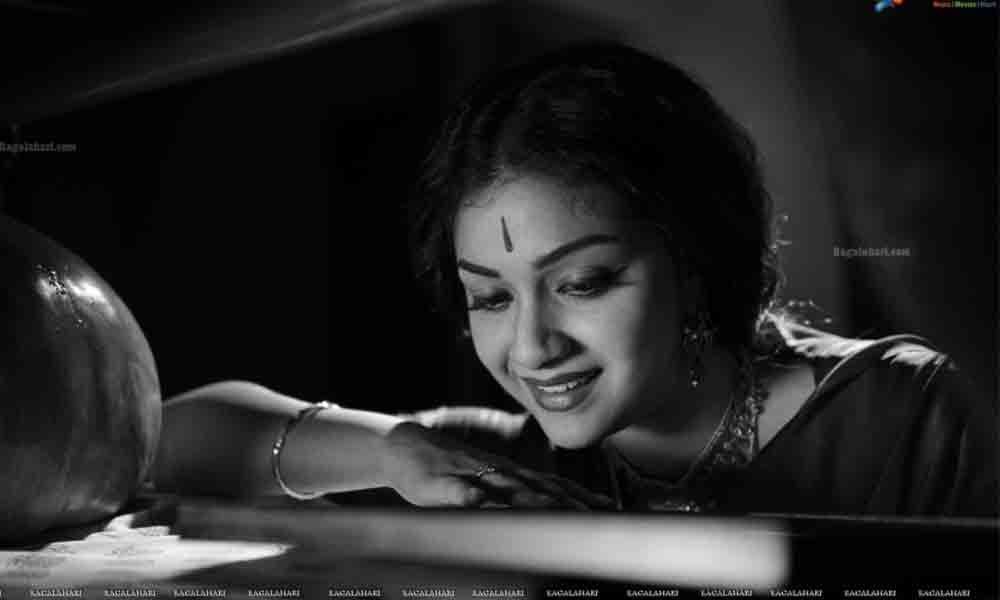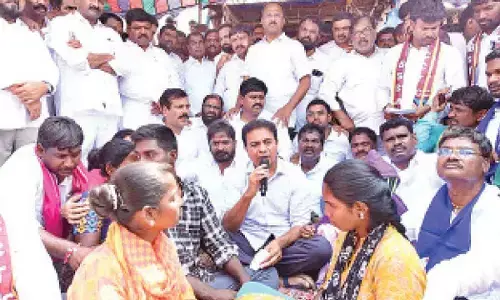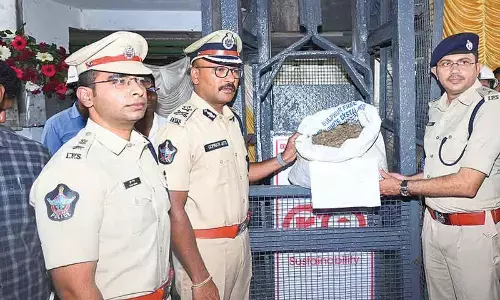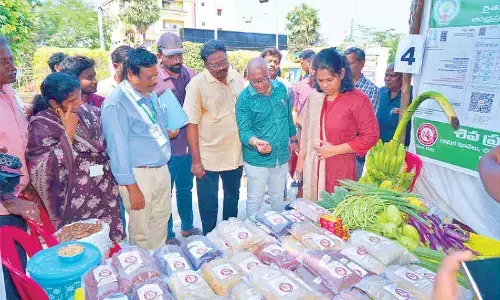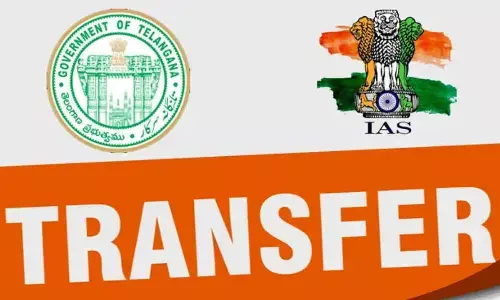From 'Kartavyam' to 'Mahanati' - A long wait ends for Telugu cinema
Best Actress: Keerthy Suresh for Mahanati
Best Telugu Film: Mahanati
Best Original Screenplay: Chi La Sow
Best Makeup Artist: Ranjith for Awe
Best Costume: Mahanati
Best Costume Designer: Rajshree Patnaik, Gaurang Shah and Archana Rao for Mahanati
Best Special Effect: Awe
29 years is a long enough phase of time when seen from any context. Especially, when it comes to participating and not being considered for any awards at the top-most level as far as governmental recognition goes. If it was the cinematic depiction of real life tough cop Kiran Bedi in the movie 'Kartavyam' that won Telugu cinema industry an award in 1990 (Best Actress: Vijayashanti), it was another filmi recreation of a VIP's life (Savithri) which got it a few more (a total of seven for the industry) in 2019. Little wonder then, the filmi folks were over the moon as the award categories including for the other Telugu movies selected were: Best Screenplay, Best Special Effects, Best Audiography, Best Costume, Best Make-Up and Best Feature Film in Telugu (for 'Mahanati').
None had heard of 'Best Actress' Keerthy Suresh till six years ago in Hyderabad or its neighbourhood. She was a child artiste, born of a mixed Tamil-Malayalam background, with a heroine mother, Menaka, whose Malayalam film narrowly missed bagging the National Award around a decade ago. 'Mahanati' was her third straight Telugu film, and a hat-trick hit of sorts, apart from a series of Malayalam and Tamil dubs which had by then given her good exposure among the local audiences in both the Telugu States and all around the world.
Interestingly, the award won by Vijayashanti, known as 'Lady Amitabh,' was a clear recognition of the box-office clout and onscreen presence she commanded back then. It was only apt that she played the role of the fearless lady cop Kiran Bedi. Similarly, Keerthy Suresh, a very interesting blend of looks which made her appeal to both the family and the teenybopper types was cherry picked, made to go through the grind and unleashed on the masala-saturated audience whose awareness and archival knowledge of Telugu cinema greats of the eras gone by was suspect. Of course, Keerthy pulled it off like none another, completing the dominating presence of mana heroines in the arena of National Awards where the superheroes from the days of the iconic duo NTR-ANR have struggled to even open their account. (See Box: National Awards and southern cinema). The film did good business at the box-office, took on the criticism from Gemini Ganesan's family, the husband of Savithri head on when the Tamil dubbing hit the theatres in the neighbouring State and attracted the younger crowd with a good star cast like Samantha, Vijay Deverakonda, etc.
Amidst all this feel good environment, a few issues have been inescapable about the National Awards selection for the nearly seven decades that it has existed. The brazen charges of favouritism, power politics of various regional lobbies, the sham that selection committees are reduced to and the open accusations traded between jury members after the announcement of the Awards. The 66th National Awards too have been ensnared in the muck of accusations and counter-accusations although muted.
The chief one among them being that the Centre is keen on warming up to the Telugu population in both the States of Telangana and Andhra Pradesh to keep its options in south India open. On the face of it, it may sound ridiculous, but it has been a fact that along with these cinema-based awards, the Padma Awards too have been used to woo recalcitrant sections of the Indians over decades. The 1971 award to MG Ramachandran as the Best Actor for his routine commercial potboiler 'Rickshawkaran' was broadly seen as a recognition of his efforts to break the monolithic DMK and emerge as a challenger, which he did, allegedly with the tacit support of Indira Gandhi.
All the same, the Telugu film industry, the richest, the biggest and the most brazenly commercial of all the four counterparts in south India has been content lying comatose in the sidelines, unable and unwilling to shed its asinine productions for something meaningful and message-laden. There have always been flickers of hope about realistic cinema, new wave movies, socially- oriented films, etc. It has hardly been sustained, except for sporadic starts and stops by die-hard optimists who keep comparing their industry to that of their neighbours and feeling wistful about its status.
However, the film universe has also gone through mind-boggling changes with the very methods of filmmaking, production, exhibition, distribution and archiving going through rapid and far-reaching changes. Irrespective of the below-average stuff that the local banners have tirelessly dished out, the segmentation of revenue streams like satellite channels and overseas markets have only emboldened and reassured the in-house masala Moghuls that their stuff will always have a market. Yet, even as a token presence, the industry has consistently failed to raise to the minimum level to compete and win at the National Award arena. An area of concern for lovers of cinema in general.
National Awards and south Indian cinema
Bharat, Urvashi, Swarna Kamal…. there may not be many who can recognise these terms in isolation. Yet these are the original names with which the National Award categories like Best Actor, Best Actress and Best Feature Film were identified till not long ago.
South Indian cinema has had mixed luck with these Awards over these several decades as they have existed. The Best Actress category Award was launched in 1968 and over these five decades it has been, only thrice – 1978, 1988 and 1990 – that Telugu film heroines have bagged them, prior to 2019. Actress Sharada bagged it for 'Nimajjanam' in 1978, Archana for 'Daasi' and Vijayashanti in 1990 for 'Kartavyam'.
Statistically analysing the situation, it is clear that the Award has come the way of southern India only eight times in the last 25 years. However, from the time of its inception in 1968, the top honours are shared by the Tamil and Malayalam film industries – 6 times each – with Kannada making it to the top thrice in a total period of 50 years.
The sorry state of affairs is reserved for the Telugu film heroes who have never won an Award at the national level. In comparison, since its launch in 1967, 22 times the award was won by various Hindi heroes, 13 times in Malayalam, seven in Tamil, five in Bengali and three each in Marathi and Kannada.
Up till the 66th edition of the National Film Awards, films from the South have won awards as Best Feature Films as many as 19 times. Since 1966, it took mana films nearly 50 years before opening its account with the 2015 blockbuster "Baahubali". Malayalam films top the table with 11 Awards, followed by Kannada (5) and Tamil (2).
-KNK


